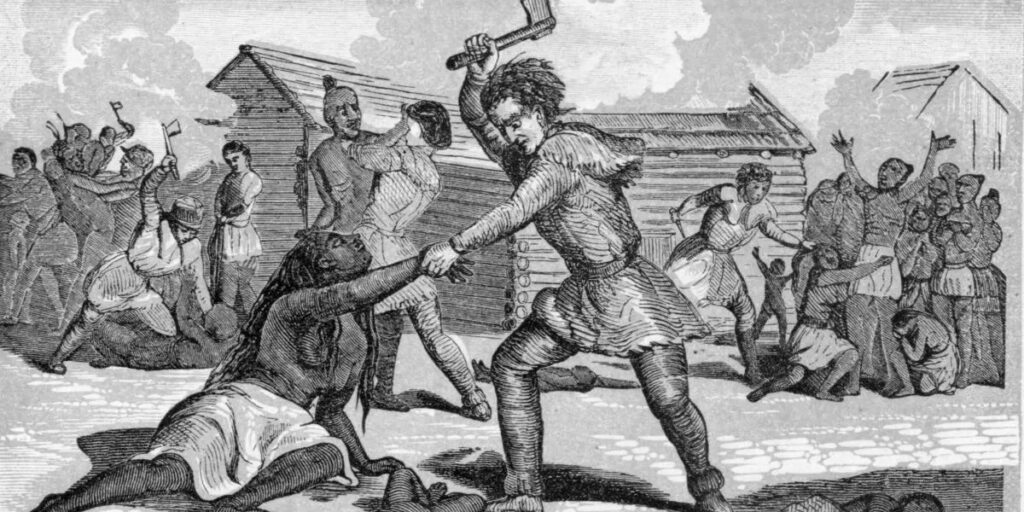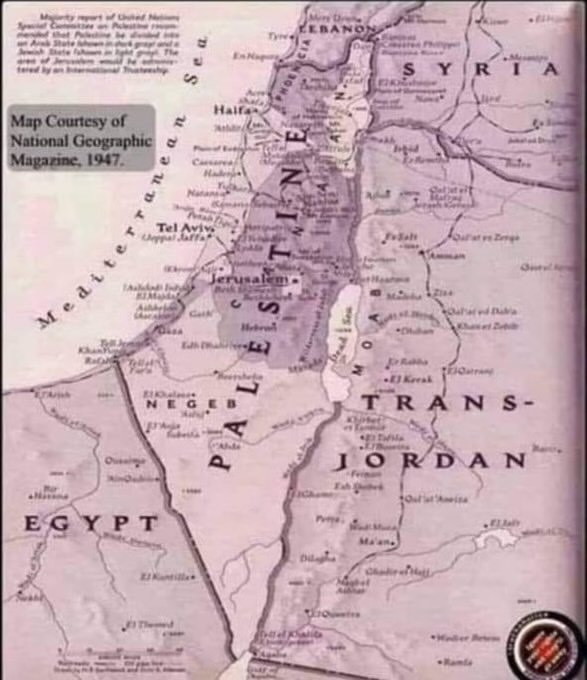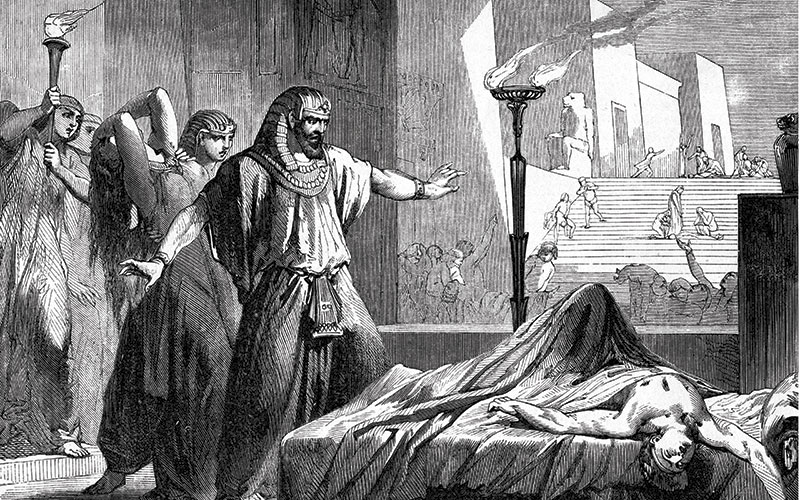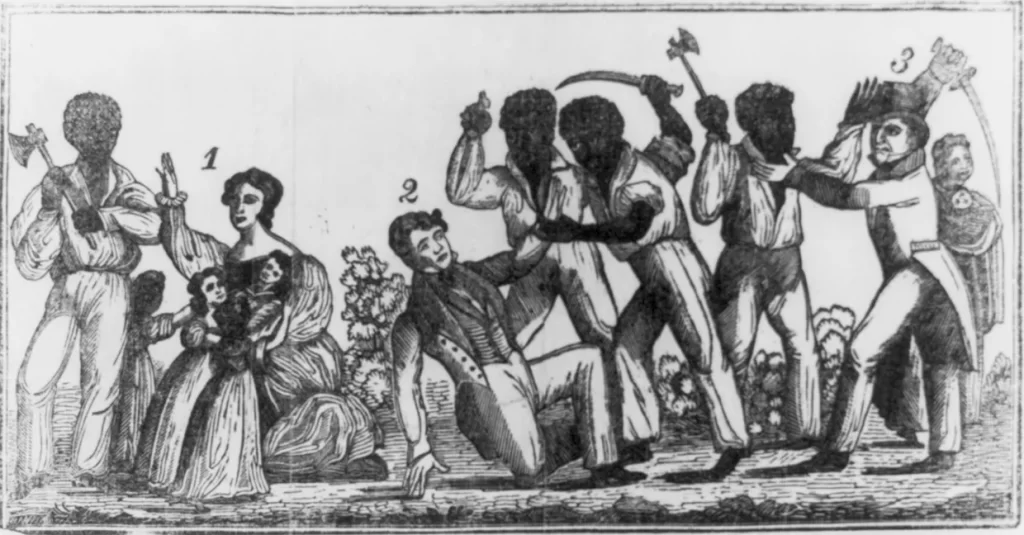I’ve recently seen a lot of social media posts from pro-Israel conservatives/Christians attempting to refute the ubiquitous “look at the shrinking Palestinian territory” maps, arguing that Palestine never controlled the land, while Israel did from antiquity. There’s a few major problems with those claims.
First, this claim utterly ignores the fact that Israel took the land from previous residents in antiquity, when it came out of Egypt, wandered around a few decades, eventually crossed the Jordan, and then began to systematically slaughter the Canaanites and other dwellers in the land. Yes, the Bible describes that the Hebrews did so at the direct command of Yahweh, but nonetheless the land was not theirs initially.
If we really want to focus on ORIGINAL land ownership in the case of Israel, why are we ignoring what preceded Israel?

Also, one might readily point out that American settlers similarly stole every square mile of the United States of America from indigenous Native American peoples, mostly slaughtering them as they proceeded towards the Pacific Ocean. Are we similarly going to say that a few hundred years of American history don’t override the thousands of years of Native American tribal rights to the land? I doubt very much that any conservative would admit that.
Second, a simpler fact than ORIGINAL land ownership is DURATION of occupation and control. Muhammad and his caliphate captured the entire Palestinian region by 640 CE – and the Dome of the Rock has stood on King Herod’s Temple Mount since 691 CE, so except for 1099 to 1187 CE (during the Crusades), the Muslims controlled Palestine largely uninterrupted for almost 1300 years. By contrast, the Jews have controlled it only since 1948, and for much of that time only with the support of Western Christian nations – not by sole virtue of asserted power.
So given that the Islamic caliphate established a Muslim Islamic state all the way back in 640 CE, how can anyone claim that a Palestinian people did not have a state there, even if it’s been in numerous political incarnations over the centuries? It may not be a single long-standing political governmental system, but it’s been consistently Arabic for the vast majority of history since the time of the Bible.
Third, regardless of the history, the victory in 1948 wrapped that new Jewish state of Israel around a culturally-consistent, long-established Arabic/Muslim people. As such, it’s entirely fair to call the inhabitants the “Palestinian people,” because that’s the name of the region. And thus, whatever government DID exist for those 1300 years, it was consistently some kind of Palestinian Muslim-oriented state.

These claims about ownership and statehood aside, and perhaps much more importantly, since 1948 the new Jewish state has consistently put the vise grips on the Palestinian people and oppressed them mightily. One thing that those maps do show very accurately, in the fourth panel, is the tiny and deeply fragmented total area remaining under complete Palestinian control.
In any case, it doesn’t really matter to me who did or didn’t “own” the land of Palestine. The ownership as such has been disputed for literally thousands of years, changing control many times prior to 640 CE, and prior ownership has little to do with current-day politics. The bigger questions are, just what rights should the longest-standing inhabitants have to autonomy, and what responsibility do the parties have towards the peoples involved? So perhaps a better metric than original ownership is: are the newer inhabitants treating the older inhabitants morally? Regardless of what one believes to be true about who owned or occupied the land the longest, it’s clear that since Israel took control, the Palestinian people has steadily been squeezed to the point of desperation.
In general, it seems to me that any oppressed people ought to have the right to petition for succor, and failing a resolution, to attempt to shake off that oppression and liberate itself. Certainly, anyone would recognize this theme in America’s own founding in 1776, as it shook off British oppression, or perhaps more relevant to this discussion, as in the various times which the Bible describes the Jewish people shaking off oppression from Egypt, Babylon, and Assyria. In each such Biblical case, the matter was not resolved peacefully, and required conflict to assert autonomy.
From that perspective, Israel has fault for its oppression of the people who live in Palestine, just as England had fault in its oppression of the early Americans, Egypt had fault in its oppression of the Hebrews, the early Americans had fault in their oppression of the indigenous Native American peoples, and so forth.
In each of these cases, notice that the invader/oppressors have claimed divine right to rule over the land and any conquered occupants. It cannot be that every party is correct about this assertion. So in my mind, Christians ought to be quite suspicious of claims that modern Israel – a quite secular government no less – is divinely right.
On the other hand, Palestine also bears fault, for repeatedly refusing to accept a two-state solution that would give them full autonomy of at least part of the land. They also have fault for deeply immoral attacks against innocent noncombatant Israeli civilians for terroristic purposes.

But supporters of Palestine will surely argue that executing asymmetrical warfare against an oppressor is necessary. There is certainly precedent for this. Remember that early Americans did the same while attempting to cast off British authority; sniping redcoats from hidden positions in the trees was “immoral” from the point of view of the British, but quite logical from the point of view of the Revolutionary army. And God and the Hebrews certainly had no qualms about extremely asymmetric warfare against the Egyptians, first slaughtering every single firstborn of noncombatant civilians and even cattle, then rejoicing in song and dance as the entire army drowned in the sea.
Some have correctly observed that one factor in Israel’s defense is that the Palestinian people have failed to properly govern themselves, resulting in ongoing harm to Israel; they need to assert control over otherwise-ungoverned areas for self protection. However, it seems that some of the fault lies with Israel itself: it refuses to really allow the governing bodies of the Palestinian-controlled regions to actually have authority, and it imposes significant and deeply intrusive external control that supersedes any real power that they might have.
At any rate, it seems clear that there is plenty of fault to go around in this conflict. Neither side is willing to budge or compromise, both sides are conducting warfare that blatantly harms and kills innocent nonparticipants, and that situation hasn’t changed for decades.
Still, it seems to me that one ought to morally consider that the Palestinians, in trying to cast off oppression and recover land they held for a thousand years, have a greater overall claim to justice than those who have been increasingly oppressing them, just as no Christian or Jew would fail to argue that the Hebrews were just in their claim against the Egyptians.
The only real reason I can fathom that the average American Christian refuses to see the injustice is because they are utterly convinced that Israel has a special Biblical claim to the land of Palestine – all of it – and from that perspective, the Palestinian Arabs have no right to the land, no right to defend themselves, no right to succor, and ought to be expelled by Israel. It’s just nearly impossible for a Christian totally convinced of the approaching End Times in Revelation, and the Bible’s prophetic judgement of Israel’s total right to the entire land, to be unbiased or to look fairly at the Palestinian claims.

But were one to look at the situation from a religiously-neutral third-party position, the ongoing daily mistreatment of Palestinians by the Jews is unconscionable, and as despicable was the raid and slaughter and kidnapping of hundreds of innocent Jews, the reason that some Palestinians were willing to take such a step is entirely understandable. It’s little different, really, than some of the slave revolts from the years shortly before the American Civil War: the oppressed slaves saw little alternative to immoral violence, and were willing to slaughter even the women and children on some plantations as they rebelled. Despite knowing full well that the slaveholder state’s response would likely be overbearing and deadly, they felt it was worth the risk to try to bid for freedom if not win the attention of a larger audience, to hopefully gain some succor from abroad their immediate lands. Even if they died as a result, they hoped to win freedom for their descendants.
And similarly, we see the same kind of result playing out regarding Gaza as once occurred in the American South: the world snapped to attention, and public opinion suddenly began to swing against the oppressors in both cases. The immediate result may not be favorable for the Gazan Palestinians – with thousands of civilians killed, buildings leveled, communities destroyed. But the world is watching and is suddenly applying dramatic pressure against the Israelis who have been mistreating the Palestinians, and one can only presume that this is exactly what Hamas calculated would happen, what they were willing to endure for the sake of freedom and autonomy, and that the results would eventually be worth the pain.
Given all of this, it seems appropriate to remember that the history of the land ownership is far less important than how the people are being treated today, and how each party is acting today. The land ownership is only relevant if one holds to a certain (and very non-universal) view of eschatology, the study of the end times. Otherwise, it is important to keep looking at the bigger picture.
The obvious question in all this is “what can be done?” This is unfortunately a question that process-happy Americans love to ask, as if some discrete set of steps will ultimately and completely settle the issue for good. But any quick look at the history of the region will quickly give lie to any hope for such a solution.

Many evangelical Christians are also looking for a solution that furthers, or at least does not interfere with, their understanding of end-times prophecy. To them, the only acceptable final condition is a fully-unified, completely Jewish-controlled political state and land of Israel with no polluting Palestinian state. (Of course, this is no different in principle than the Palestinian idea that the entire region should once again be full under Islamic control, with no Jewish state.) Such a religiously-imposed boundary condition makes any kind of moderated or mediated solution impossible, because such a solution would require both parties compromising these dogmatic beliefs in the nature of an acceptable solution. This, to me, seems fundamentally selfish, not to mention saying something rather surprising about their respective Gods – that their chosen deity is unable to achieve their plans without a human-led victory. It removes any possibility of waiting for or expecting a miraculous solution, but tries to make mankind the arbiter or creator of the solution.
Ultimately, I believe that the correct answer is quite the opposite of trying to find some government-imposed solution, or some diplomatic solution, trying with human strength to create the ideal conditions for long-prophesied results to take place. After all the apocalyptic language in Revelation about Christ riding into battle to slaughter all enemies, the Bible describes a righteous people rising up from every tribe, tongue, nation, and people group, becoming the very dwelling place and temple of God, and so attractive that the kings of the earth will willingly arise to bring their glory into it, as the prophet Isaiah wrote centuries before Revelation:
And many peoples will come and say,
“Come, let us go up to the mountain of Yahweh,
To the house of the God of Jacob,
That He may instruct us from His ways
And that we may walk in His paths.”
For from Zion the law will go forth
And the word of Yahweh from Jerusalem. (Isa 2:3, LSB)
That’s the ultimate solution for this conflict over the land of Palestine – or any and all conflict. Consider that, as presented across all of the Bible, the thing it will take for this to come about is NOT a state conquering another state, but a people each individually turning back to the Lord, becoming individual members of this Kingdom of peace and righteousness and justice. If so, the answer is not to cheer on and fund and arm Israel’s fight against the Palestinians. We can and should fight against injustice and oppression, but that won’t bring the permanent lasting peace we desire. Instead, it’s for us each to live rightly before the Lord, bringing about peace in small pockets around each of us, slowly but steadily building the Kingdom here and now. And in due time, we will see what happens in the very next verse:
And He will judge between the nations,
And will render decisions for many peoples;
And they will hammer their swords into plowshares
and their spears into pruning hooks.
Nation will not lift up sword against nation,
And never again will they learn war. (Isa 2:4)
THAT is the ultimate solution to this problem. It’s a solution directly founded in the spirit realm, not in any earthly power structure. It’s not fast, it’s not easy, but it’s righteous. It will bring indisputable glory to God, and increase God’s Kingdom here on earth.
So let’s do our own part of this, and stop trusting in nation-states, politicians, and armies to bring about the Kingdom of God.

VERY GOOD!